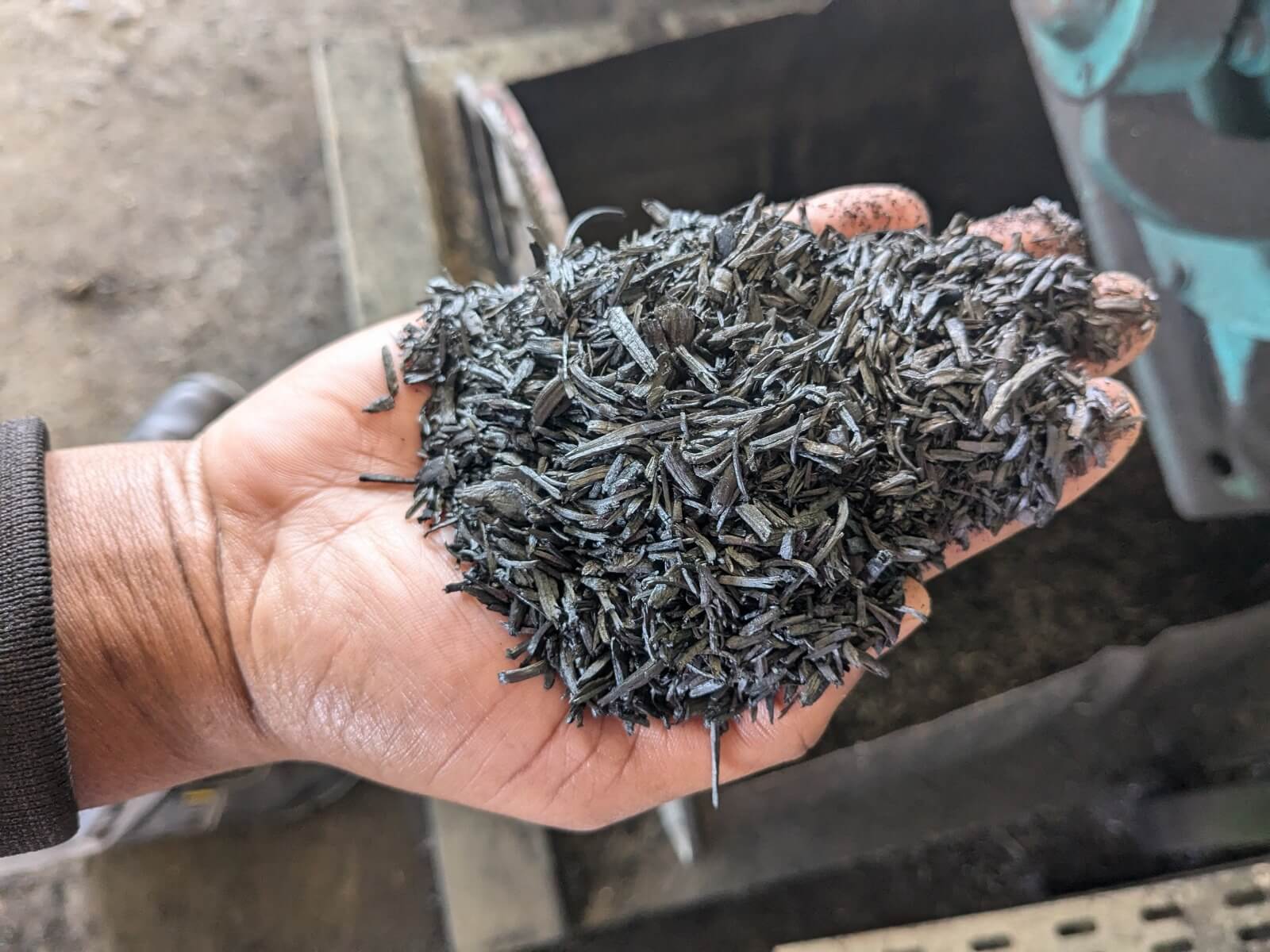What is biochar?
Biochar is a carbon-rich material created through pyrolysis, a process that heats organic biomass, like agricultural waste, in a low-oxygen environment. This stabilises carbon, preventing it from entering the atmosphere and offering long-term benefits for soil health and climate change mitigation.
Biochar in Agriculture
When incorporated into soil, biochar acts as a powerful amendment that improves soil structure, chemistry, and biology. This is particularly valuable in regions suffering from soil degradation, drought, and nutrient loss.
Its porous structure enhances water retention, reducing irrigation needs and helping crops endure dry conditions. Biochar improves aeration and reduces soil compaction, allowing roots to grow deeper and healthier. It also strengthens soil aggregation, increasing its capacity to retain water and nutrients.
Chemically, biochar optimises fertility by retaining essential nutrients, preventing runoff, and increasing the soil’s Cation Exchange Capacity (CEC), which improves nutrient availability. Its natural alkalinity helps neutralize acidic soils, creating ideal growing conditions.
Biochar supports soil biology by fostering beneficial microbes that cycle nutrients and improve overall soil health. It also helps suppress harmful pathogens like root rot fungi, promoting healthier root systems and stronger crops.
By enhancing soil resilience and productivity, biochar boosts yields, reduces costs, and supports sustainable farming.
Biochar in Construction
Biochar is a versatile and sustainable material increasingly used in the construction industry. When incorporated into building products like concrete, bricks, and insulation, biochar delivers significant benefits, including;
Save money:
Biochar can replace up to 10% of cement in concrete mixes, reducing material costs.
Enhance Durability:
Biochar improves the strength and longevity of concrete and other building materials, making them more resilient.
Improve Insulation:
Its porous structure acts as an effective insulator, contributing to energy-efficient buildings.
Reduce Carbon Footprint:
Using biochar in construction helps sequester carbon, reducing the environmental impact of building projects and promoting sustainable construction practices.
High Quality Biochar
Our biochar is created under very high temperatures during the pyrolysis process, ensuring that it retains its structural integrity and optimal properties.
Industry-Leading Carbon Content: Our biochar has one of the highest carbon contents in the industry, making it an exceptional tool for carbon sequestration and soil health improvement.
Certified for Agricultural Use: Our biochar is certified by the World Biochar Initiative (WBC) to be safe and effective for agricultural applications, meeting the highest standards of quality and safety.
Sustainable and Reliable:
Produced using sustainable methods, our biochar is a reliable resource that supports long-term soil fertility, carbon storage, and environmental sustainability.

FIND OUT MORE
Ready to enhance your soil or construction project with high-quality biochar?
Get in touch with us today to learn how our premium biochar can make a lasting impact on your agricultural, landscaping, or construction needs
